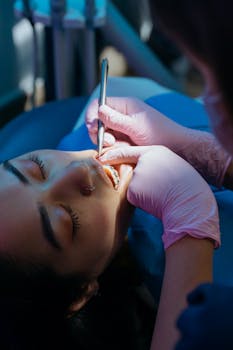Breast implants are a popular option for those seeking to enhance their appearance and boost their confidence. However, it’s essential to understand the potential breast implants side effects before making a decision. Whether considering a procedure or already having implants, being informed about possible complications and how they may affect your health can help you make educated choices.
Understanding Breast Implants Side Effects
Most individuals who undergo breast augmentation don’t encounter major issues, but no surgical procedure is without risks. Common breast augmentation complications include infection, pain, and scar tissue formation around the implant, known as capsular contracture. For some, the presence of breast implants can lead to more concerning issues.
One of the major concerns is breast implant illness (BII), a term used to describe a variety of symptoms that some believe are linked to implants. BII symptoms can include fatigue, joint and muscle pain, cognitive difficulties, and skin rashes. While these symptoms can be distressing, they are not universally recognized as being caused by breast implants, and research is ongoing to better understand their origins.
Recognizing Signs of Breast Implant Problems
It’s crucial to be aware of signs of breast implant problems that may require medical attention. These signs include prolonged swelling or pain, changes in breast shape or size, and signs of infection such as redness or fever. Additionally, there are concerns that silicone breast implants can cause a rash or other skin reactions.
In rare cases, the body can reject breast implants years after the initial surgery. Symptoms of your body rejecting breast implants can mirror those of breast implant illness, complicating diagnosis and treatment. It’s important to regularly monitor any changes and consult healthcare providers if new symptoms develop.
Breast Implant Illness and Related Concerns
Breast implant illness remains a debated topic, with proponents advocating for more acknowledgment of the condition. Symptoms often reported include chronic fatigue, breast implant pain, and neurological disorders. While these symptoms can significantly impact quality of life, studies have yet to establish a direct cause-effect relationship between breast implants and these health issues.
Many wonder, “can breast implants make you sick?” While definitive answers are still elusive, those experiencing unexplained symptoms are encouraged to communicate with their healthcare providers for appropriate evaluation and management.
Rare but Serious Complications
In addition to BII, there are rarer, yet serious risks of breast surgery such as breast implant-associated anaplastic large cell lymphoma (BIA-ALCL), a type of cancer linked to certain types of implants. Although the risk is considered low, it’s something to be mindful of when considering or maintaining breast implants.
Complications like these highlight the importance of regular check-ups with a knowledgeable healthcare provider. If undergoing breast augmentation, it’s critical to discuss any allergies, including potential symptoms of silicone poisoning, with your surgeon to mitigate potential risks.
Long-term Considerations
Long-term maintenance of breast implants can involve additional surgeries for replacement, repair, or to address issues like capsular contracture. Considering these factors, one might weigh whether a “boob job” aligns with personal health priorities. As with any cosmetic procedure, the benefits should be carefully measured against the possible breast enhancement risks.
Environmentally conscious individuals might also explore sustainable beauty practices to ensure holistic well-being beyond surgical care.
Ultimately, understanding potential breast implant complications can empower individuals to make informed decisions about their bodies and health. Whether it’s concerns over breast implant syndrome, a list of possible illnesses, or the question of “does BII make you lose weight,” transparency and education are key components in navigating this complex healthcare decision.
- Be aware of breast implants’ potential side effects and consult a healthcare provider for concerns.
- Understand the symptoms associated with breast implant illness despite ongoing debates on the condition.
- Regular check-ups can help address long-term risks associated with breast implants.
- Consider discussing personal health needs and potential complications with your surgeon prior to augmentation.
- Explore sustainable beauty practices as a complement or alternative to surgical procedures.
What are common symptoms of breast implant illness?
Common BII symptoms may include chronic fatigue, joint pain, headaches, hair loss, rashes, and cognitive issues. Communicating these symptoms with a doctor is critical for potential diagnosis.
Can your body reject breast implants years after surgery?
Yes, while uncommon, the body can indeed reject implants years later, marked by symptoms like pain, swelling, or rash. Discuss any such changes with a healthcare professional.
How is breast implant illness diagnosed?
There is no definitive test for BII. Diagnosis often involves ruling out other conditions and thorough consultation with a healthcare provider to assess symptoms and potential implant issues.
Does breast implant illness cause bone loss or weight loss?
There is no conclusive evidence linking BII directly to bone loss or weight loss. Concerns about these symptoms should be discussed with medical professionals for appropriate evaluation.
How common is breast implant illness?
The prevalence of breast implant illness isn’t clearly defined, and research is ongoing. However, some individuals with implants do report developing these symptoms, which highlights the importance of awareness and consultation with healthcare providers.






